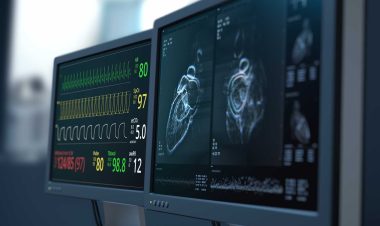Your abdomen contains many vital organs, including your stomach, small intestine, large intestine, liver, pancreas, bladder, kidneys and more. If you have symptoms that indicate something may be wrong with any of the organs or tissue inside your abdomen, your doctor may order a computed tomography (CT) scan.
Abdominal CT scans typically take less than 30 minutes to complete, which makes them faster than MRI scans. During an abdominal CT scan, patients are required to remain as still as possible. Movement may cause blurred images, which can make it more difficult for doctors to identify and diagnose signs of inflammation, infection or disease.
What Does a CT Scan of the Abdomen Do?
A CT scan produces multiple detailed images of the inside of the body, including organs, tissue and blood vessels. Unlike traditional X-rays, the images produced by CT scans can be formatted and viewed in multiple planes, such as 3D. This makes it easier for doctors to see potential problems.
A CT scan of the abdomen also helps doctors:
- Guide biopsies and procedures that take place inside the abdominal area
- Plan and administer cancer treatments, including radiation and chemotherapy
- Plan surgeries and assess surgical results
Why Would Someone Need a CT Scan of the Abdomen?
The most common reason someone would need a CT scan of the abdomen is unexplained abdominal pain that their doctor was unable to diagnose or the doctor suspects a disease affecting the internal organs or abdominal cavity.
Diseases that can be detected and diagnosed with a CT scan of the abdomen include:
- Appendicitis
- Cancer of internal organs
- Crohn’s disease
- Injuries to internal organs
- Kidney problems and bladder stones
- Pancreatitis
- Ulcerative colitis
How Do You Prepare for a CT Scan of the Abdomen?
If you’re scheduled to have a CT scan of your abdomen, wear comfortable and loose-fitting clothing. Leave piercings and other jewelry at home and remove eyeglasses and dentures, as they may affect the imagery.
If your CT scan requires the use of oral contrast material, you may be required to avoid having anything to eat or drink for a few hours before your scan.
Read More: CT Scans: What to Know
To prevent delays and complications, you should tell your doctor about:
- History of allergies and allergic reactions to contrast material
- History of heart disease, asthma, diabetes, kidney disease or thyroid problems
- Pregnancy
- Recent illnesses and other medical conditions
- Medications you’re taking
How Does a CT Scan of the Abdomen Work?
A CT scan of the abdomen takes roughly 30 minutes to complete. You will lay flat on your back on an examination table, which will move through the CT scanner. Using an X-ray beam and various levels of radiation, the CT scan will take multiple images of different areas of the abdomen. Some scans require multiple passes through the machine to complete.
CT scans are fast and painless, but you may find it uncomfortable to lie perfectly still for several minutes or briefly hold your breath so the machine can capture clear images. Medication can help you relax during the scan. Your doctor also may administer contrast dye material using an IV to better visualize your abdomen and potential problems. While this happens, you may notice a temporary metallic taste in your mouth.
Choose Carolinas Imaging Services for Your CT Scan
At Carolinas Imaging Services, we work hard to make our outpatient CT scans as quick and convenient as possible for our patients with next-day appointments at multiple locations throughout Charlotte. Our radiologists have the expertise and technology to promptly diagnose problems and will coordinate closely with your doctor to create a treatment plan that’s right for you.
Physicians rely on different types of diagnostic imaging tests to help find and diagnose illnesses and diseases that aren’t easily seen or felt during physical examinations. CT scans are one of the most commonly used diagnostic imaging tests because they’re non-invasive and provide clear images.



